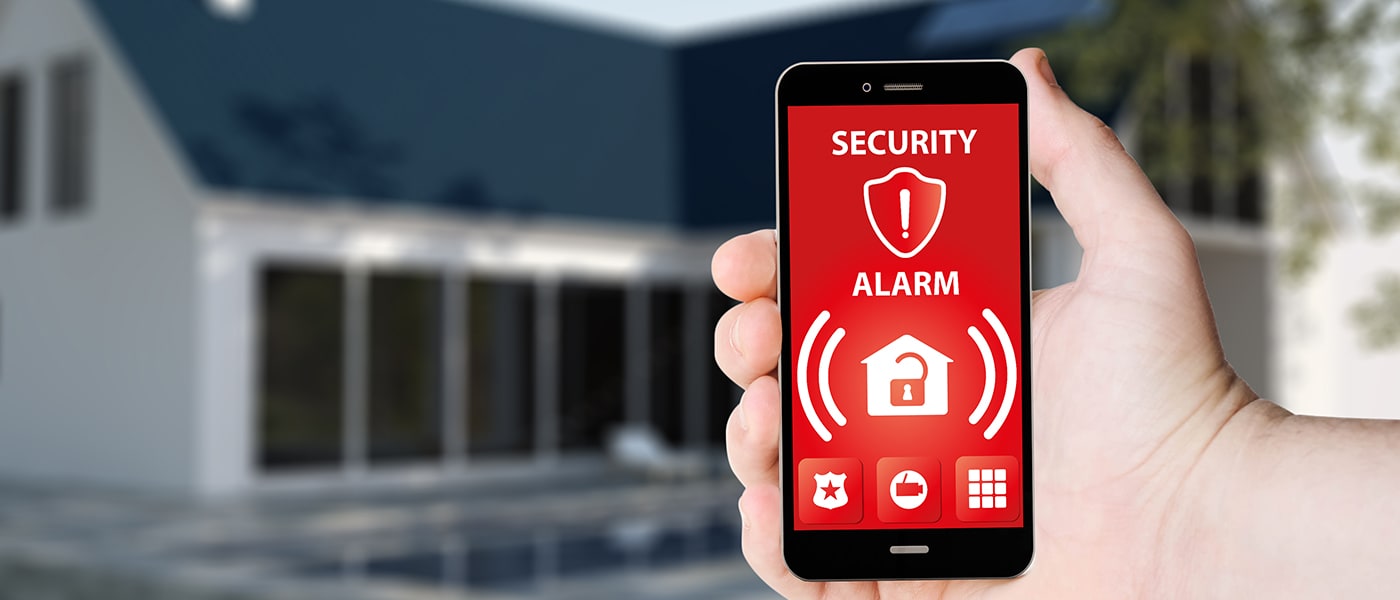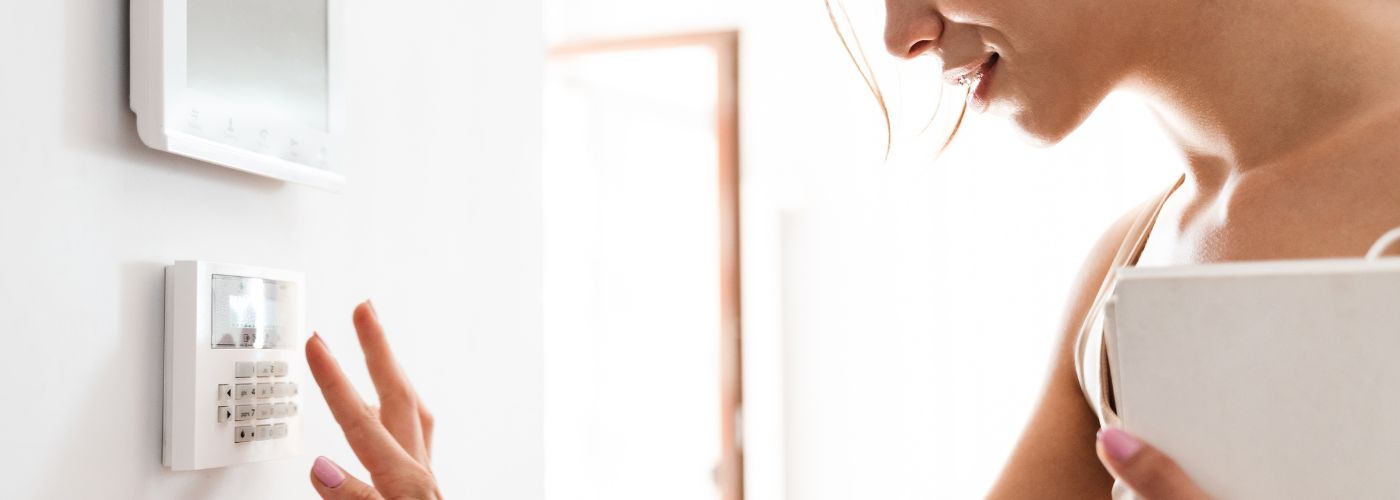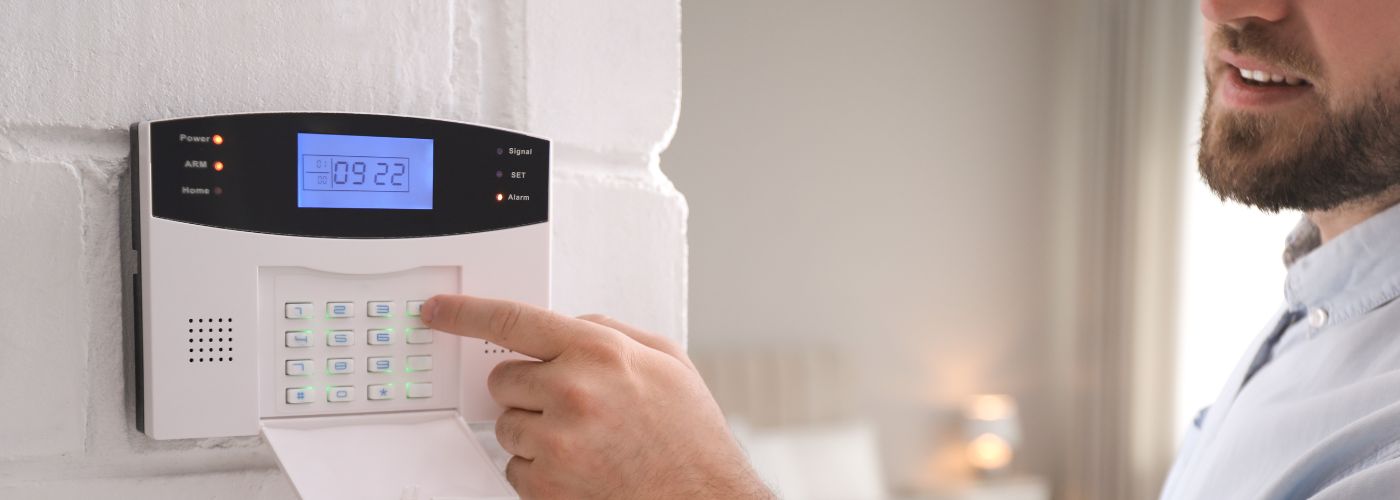Imagine the frustration of rushing home only to find out your security alarm went off for no good reason. False alarms are more common than you might think, and they can disrupt your peace of mind. We’ll be going over common home security false alarms. By being aware of these potential false alarms, you can prevent them from disrupting your home.
Causes For Home Security False Alarms
One common cause of false alarms in home security systems is simply forgetting to turn off the alarm system. Life can get hectic, and it’s easy to rush out the door without disarming your security system, especially during busy mornings or when you’re preoccupied with thoughts of the day ahead.

This oversight not only triggers the alarm but can also lead to frustration when you realize it was all a mistake.
Another factor contributing to false alarms is improper installation or maintenance of the security system. If sensors aren’t calibrated correctly or are placed in areas prone to movement—like near pets or open windows—they can easily be triggered by everyday activities.
Regularly checking and updating your system can help minimize these issues, ensuring that your security measures are effective and reliable. By addressing these common pitfalls, homeowners can enhance their peace of mind while reducing unnecessary disturbances for both themselves and their neighbors.
User Mistakes During System Setup
Home security systems are designed to keep us safe, but they can sometimes create unnecessary stress with false alarms. Often, homeowners may overlook crucial steps, like ensuring all sensors are properly calibrated or forgetting to remove temporary codes.
This oversight in surveillance set up can lead to alarms triggering at the slightest movement, turning your reliable security system into a source of frustration.

You can check this by reviewing the user manual provided by your security system’s manufacturer. Familiarize yourself with the setup procedures, and make sure all components are correctly installed and calibrated.
Additionally, ensure that you have removed any temporary codes or settings that might be causing the system to misread normal activity as a threat.
Regular maintenance is also key to minimizing false alarms. Schedule periodic checks on your sensors and cameras to ensure they are functioning properly and free from obstructions.
Pets Activating Motion Sensors Unintentionally
One of the most common causes of home security false alarms is pets activating motion sensors unintentionally. Many homeowners may not realize that even small animals can set off these devices, leading to a frustrating experience for everyone involved.
A dog wagging its tail or a cat jumping from one surface to another can trigger the alarm, prompting a visit from local authorities and causing unnecessary panic.
You can check this by adjusting the sensitivity settings of your motion sensors. Many modern security systems allow you to customize the sensitivity levels, which can help reduce false alarms caused by pets.

Additionally, consider installing pet-friendly motion detectors that are designed to differentiate between the movement of animals and humans.
Low Battery Levels Causing Malfunctions
One of the most common causes of home security false alarms is low battery levels causing malfunctions. When batteries in motion sensors or door/window contacts run low, they can send inaccurate signals to your alarm system.
This not only disrupts your peace of mind but also leads to unnecessary responses from law enforcement, wasting their resources and your time. Regularly checking and replacing batteries is a simple yet effective way to prevent these frustrating incidents.
You can check this by inspecting the battery levels on your security devices, which is often indicated by a warning light or a notification on your security system’s app. Many modern alarm systems also have features that alert you when battery levels are low.
Outdated Technology Leading to Increased False Alarms
Home security systems are designed to protect us, but they can sometimes do more harm than good when false alarms occur. One significant factor contributing to these annoying alerts is outdated technology.
Many older systems rely on sensors and equipment that may not function properly or fail to communicate effectively with other devices. This can lead to unnecessary triggers, causing homeowners to feel anxious and frustrated.
You can check this by regularly testing your system to ensure all components are functioning correctly. Schedule routine maintenance checks with a professional technician who can identify any outdated or malfunctioning equipment and recommend upgrades.
Additionally, consider updating your sensors and cameras to newer models that utilize advanced technology, such as smart home integration and improved motion detection capabilities!
Weather-Related Interference with Outdoor Cameras
False alarms in home security systems can often be traced back to unexpected sources. One common culprit is weather-related interference with outdoor cameras. Heavy rain, snow, or even strong winds can obstruct the camera’s view or trigger motion sensors inadvertently.
For instance, raindrops hitting the lens can create a flurry of false movement, alerting homeowners unnecessarily. It’s essential to ensure that cameras are well-placed and equipped with protective covers to minimize these weather-related disruptions.
It’s best to prevent this by installing cameras with advanced motion detection technology that can differentiate between actual movement and environmental factors. Additionally, utilizing cameras with features such as image stabilization and rain/snow filters can significantly reduce false alerts triggered by adverse weather conditions!
